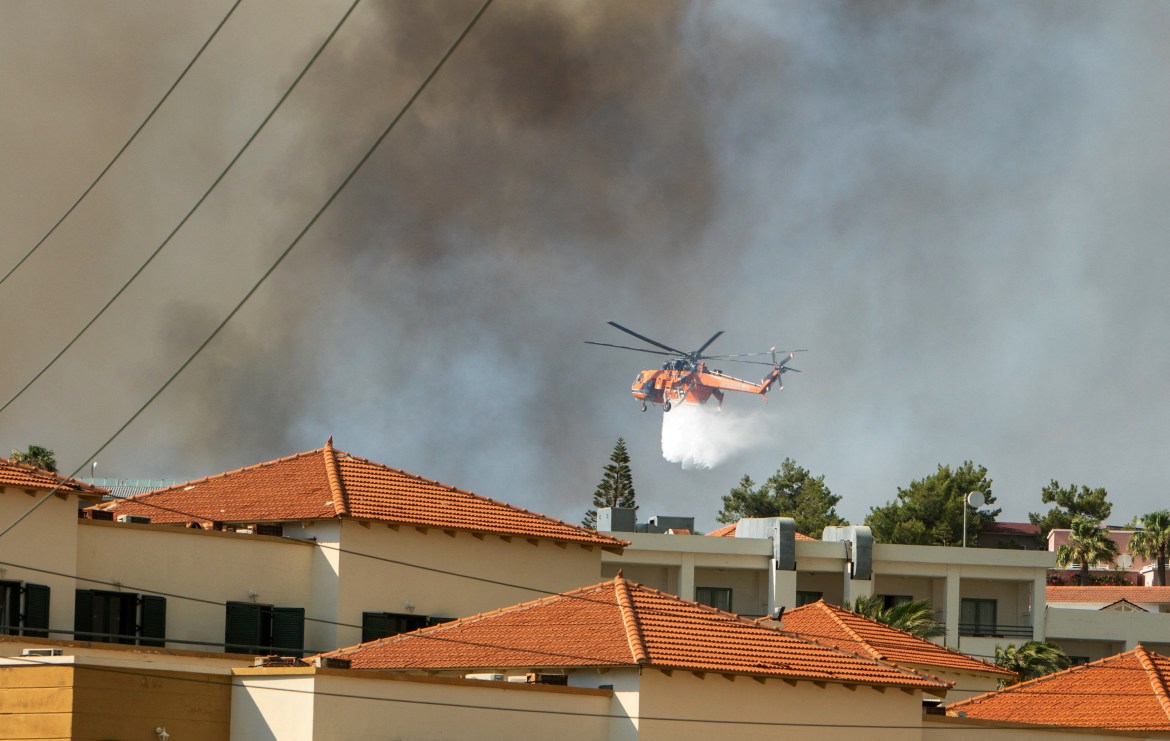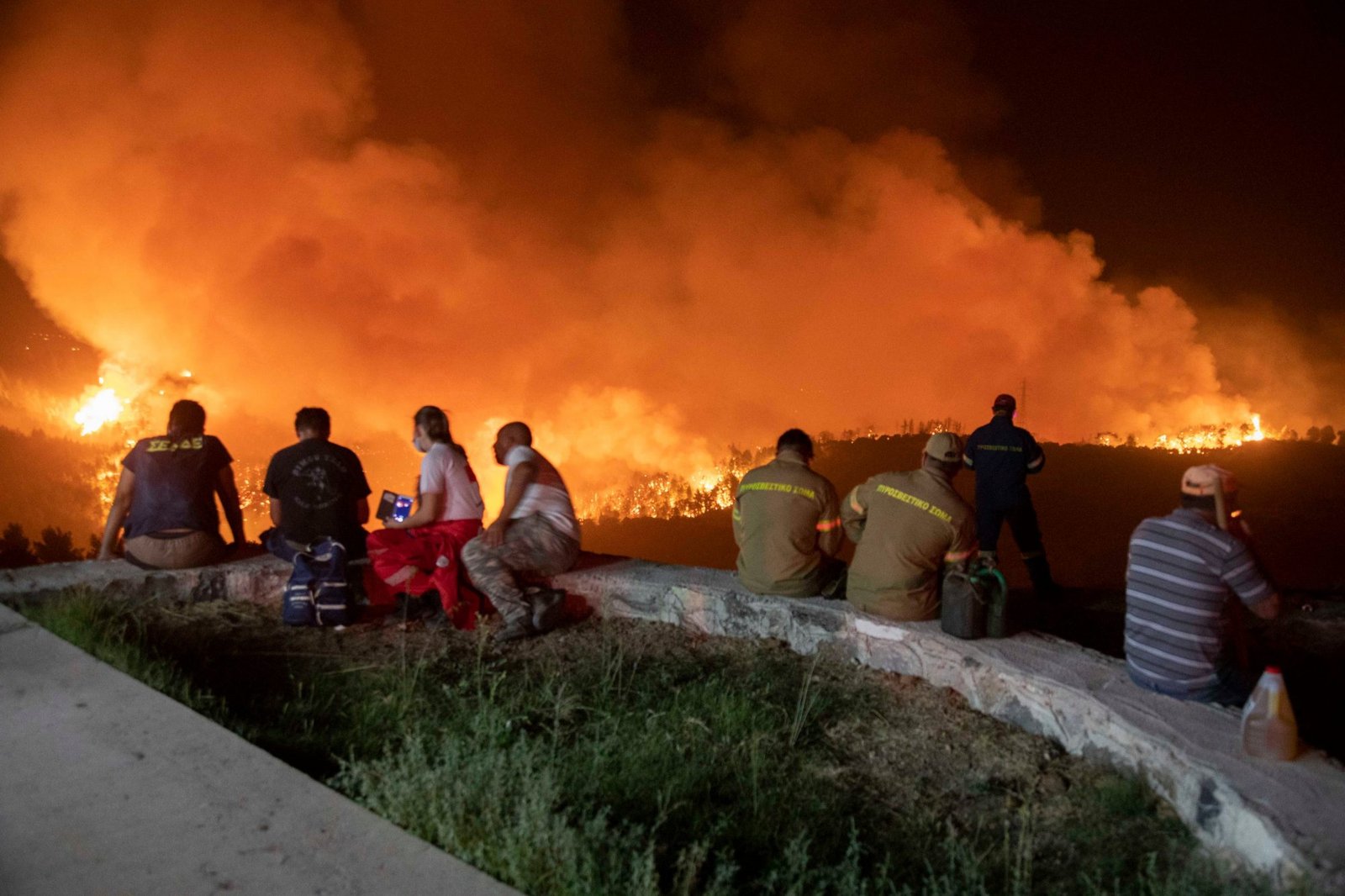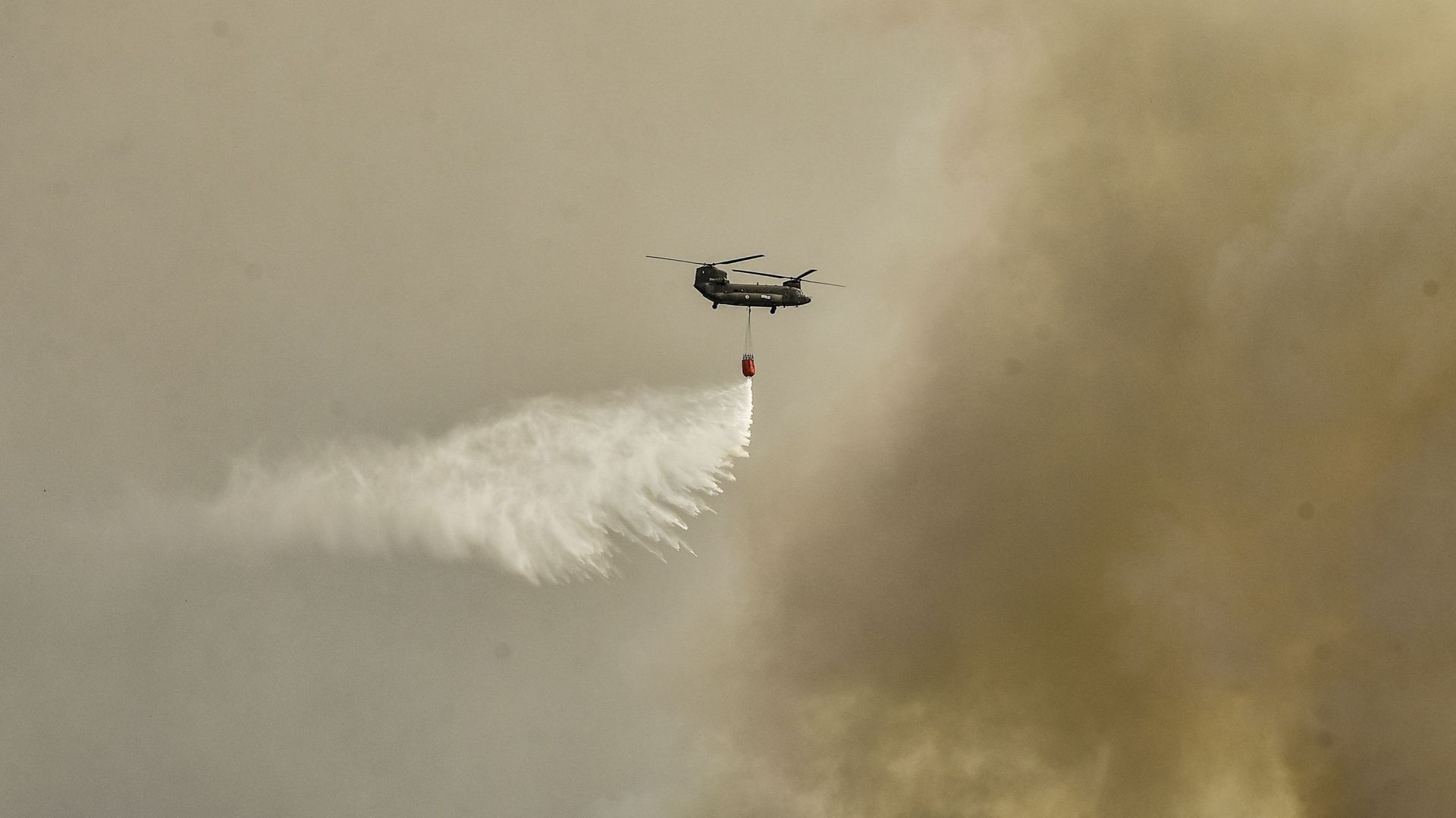
Tourists Evacuated as devastating Fire Ravage the Greek Island of Rhodes
Rhodes, Greece
24/07/2023

In a devastating turn of events, the idyllic Greek island of Rhodes has been engulfed in a series of raging wildfires, prompting authorities to undertake emergency measures to protect both locals and tourists. As the flames continue to spread relentlessly, picturesque landscapes have transformed into scenes of destruction, forcing the evacuation of thousands and sending shockwaves through the Mediterranean nation.
The wildfires, believed to have been ignited by a combination of scorching temperatures and prolonged drought, have been consuming vast swaths of the island for several days now. Local firefighting units, along with aid from neighboring regions, have been tirelessly battling the infernos, but the extent of the blazes has proved overwhelming, stretching resources to their limits.
One of the hardest-hit areas is the northern region of the island, known for its stunning coastline and lush vegetation. As flames leap from one tree to the next and embers are carried on the wind, the fire’s unpredictability has created an arduous challenge for the firefighting crews. Despite their valiant efforts, the fires have rapidly spread and continue to threaten residential areas, historic sites, and tourist hotspots.

The situation took a turn for the worse as the fire approached popular tourist destinations on the island. Local authorities made the difficult decision to evacuate holidaymakers and residents alike to ensure their safety. Hotels and resorts became temporary shelters for those displaced by the rapidly advancing flames. The evacuation process was fraught with tension and urgency, with authorities working tirelessly to guide people to designated safe zones.
Tourists from various countries found themselves in unfamiliar territory, with many grappling with language barriers and anxiety about their safety. However, the local community showed their characteristic warmth and hospitality, offering support and reassurance to those affected by the disaster.

Amid the ongoing firefighting efforts and evacuations, the Greek government has requested assistance from neighboring countries and international organizations to augment their resources. Firefighting aircraft from Italy, Spain, and other European nations have joined the battle from the skies, dropping water and fire-retardant chemicals in a bid to contain the flames.
As the flames continue to spread, cultural and historical heritage sites have fallen under threat. Rhodes, renowned for its rich history dating back to ancient times, houses numerous archaeological wonders, including the Acropolis of Rhodes, the Ancient Kamiros, and the Palace of the Grand Master of the Knights of Rhodes. The potential loss of these irreplaceable treasures has struck a chord with people around the world who appreciate the island’s cultural significance.
While the primary focus remains on extinguishing the fires and ensuring the safety of those affected, questions have arisen about the underlying factors contributing to the severity of the disaster. Climate scientists have long warned about the increasing risk of wildfires due to rising global temperatures and changing weather patterns, making such catastrophes more frequent and intense.
As the situation continues to unfold, experts are already looking toward the future. Preparedness and mitigation strategies will be a priority for both the Greek government and communities on the island. Learning from this crisis, implementing sustainable practices, and investing in advanced firefighting technologies will become paramount to prevent such devastation in the years to come.
For now, the people of Rhodes remain united in their efforts to combat the raging wildfires. As the fires subside, the process of recovery and rebuilding will begin. The global community stands in solidarity with the island’s residents, offering condolences for the losses incurred and pledging support for the restoration of Rhodes’ natural beauty and cultural heritage.
As the sun sets over the scorched landscape, there is hope that the indomitable spirit of the people, the resilience of nature, and the assistance of nations near and far will eventually triumph over this calamity, allowing Rhodes to rise from the ashes and reclaim its place as a beloved destination for tourists and locals alike. But for now, the priority remains on bringing an end to the fiery nightmare that has gripped the island and its inhabitants.
In the aftermath of this tragedy, the international community has come together to extend support and solidarity to Greece. Neighboring countries have sent firefighting teams, equipment, and aid to assist in the containment efforts. Messages of condolences and offers of help have poured in from leaders and citizens worldwide, emphasizing the shared responsibility of combatting climate change and its consequences.

The European Union, of which Greece is a member state, has pledged to provide significant financial assistance for reconstruction efforts. The funds will not only go toward rebuilding infrastructure and homes but also investing in fire prevention technologies, firefighting capabilities, and community resilience programs.
Environmental organizations are also actively involved in relief and recovery efforts. They are collaborating with local authorities to rehabilitate the scorched land, restore damaged ecosystems, and replant trees to combat soil erosion. These initiatives aim to ensure that Rhodes can recover not just in the short term but in a manner that promotes long-term sustainability and ecological balance.
In light of this disaster, the urgency of addressing climate change has become more apparent than ever. Governments worldwide are facing increasing pressure to step up their efforts in combating the effects of global warming. Transitioning to renewable energy sources, implementing eco-friendly land management practices, and raising awareness about the importance of environmental conservation are becoming priorities on the global stage.
As the Greek island of Rhodes embarks on its journey of recovery, it also serves as a poignant reminder of the vulnerability of other regions facing similar climate-related challenges. From California to Australia, wildfires have become a recurring nightmare for communities worldwide. The urgent need for international cooperation and collective action in addressing the root causes of these disasters has never been more evident.

In conclusion, the wildfires that ravaged the Greek island of Rhodes have left behind a trail of devastation, testing the resilience of its people, its environment, and its tourism industry. However, in the face of adversity, Rhodes has shown its spirit of unity and determination to rebuild. As the world stands in solidarity, offering support and aid, the focus now shifts to sustainable recovery and building a future that prioritizes the protection of both nature and communities. The fires of Rhodes will be remembered as a wake-up call, urging humanity to address the urgent challenge of climate change and safeguard our planet for generations to come.




